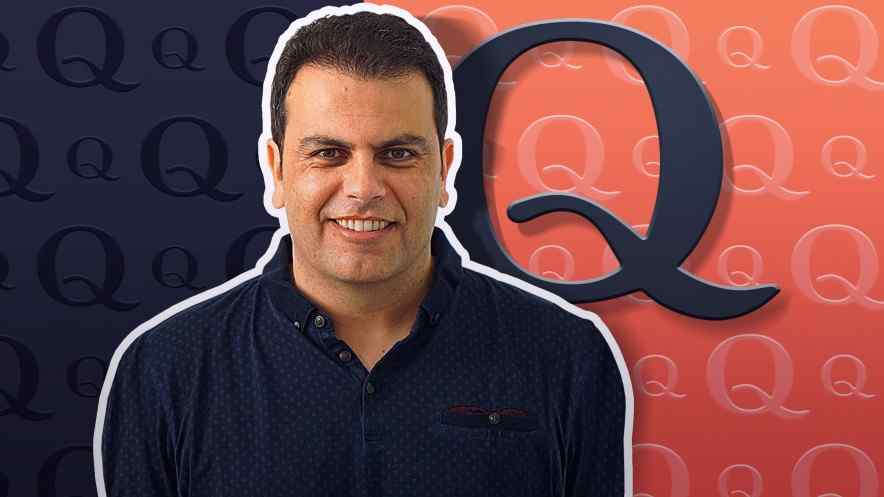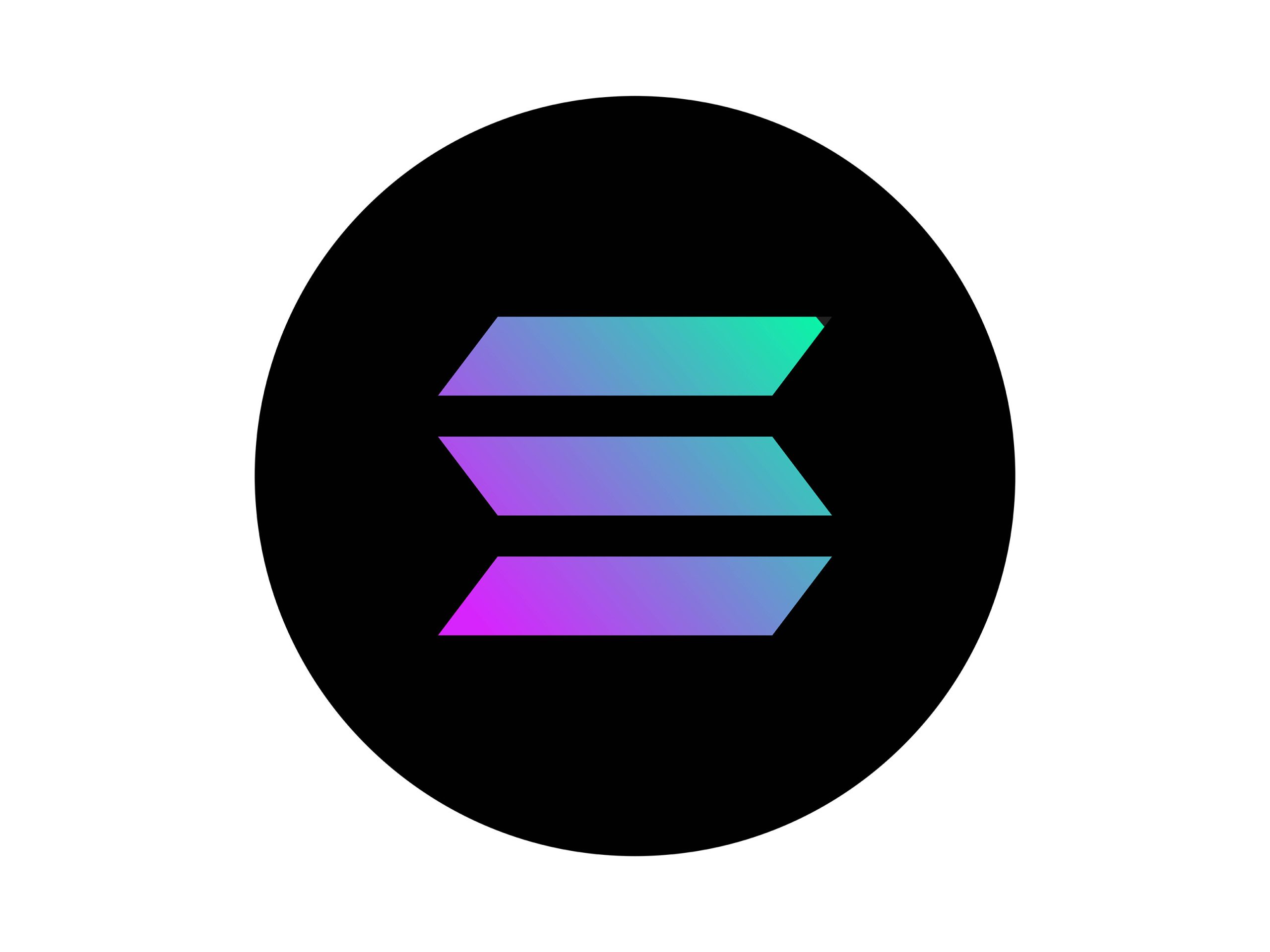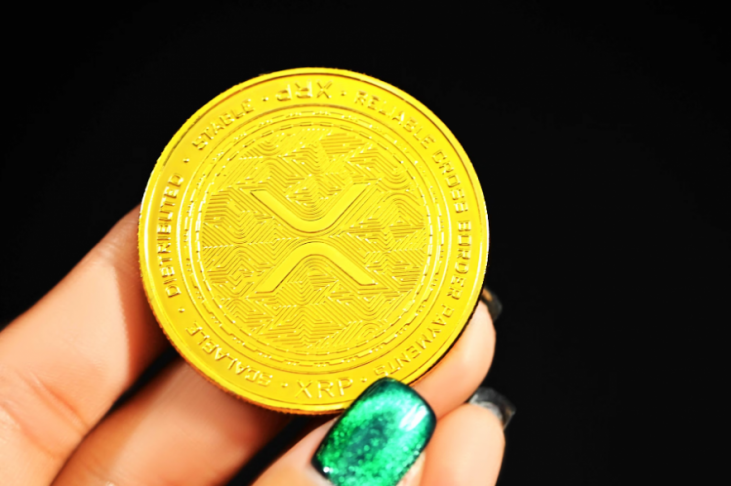Initiative Q Is Not a scam, Not a Cryptocurrency. Founder Saar Wilf Sheds Some Light
Nov 21, 2018, 2:28pm
We interview Initiative Q's Founder Saar Wilf to learn more about the digital currency project that is permeating social media feeds worldwide.
Chances are, if you are plugged-in to the world of digital currencies and blockchain technology, you have likely stumbled across the “Initiative Q” project. In fact, the Initiative Q marketing campaign is currently ‘going viral” across multiple social media platforms, so even if you don’t know anything about “crypto”, “Bitcoin” or “blockchain”, there is still a very good chance you have an acquaintance who is sharing Initiative Q (IQ) marketing content. There is a good reason for IQ’s rise to the front of our “news feeds” — the IQ project promises early adopters thousands of free “Qs”, a digital coin with the potential to be worth $1 USD if the project gains traction, in exchange for nothing more than a name and an email address.
The growing interest in the project has raised many questions from potential users and critics who want to know more about the mechanics behind IQ. In order to shine some light on IQ’s new approach to digital currency, we’ve reached out to Initiative Q’s founder, Saar Wilf, to get to the bottom of the project, and to find out if there is substance behind the promises made by IQ’s clever marketing campaign.
What is Initiative Q?
To be clear, Q is NOT a cryptocurrency, it is a private currency in digital form.
Cryptocurrencies, such as Bitcoin, are decentralized and autonomous, and therefore do not rely on a central governing authority for processes such as transaction verification or policy formulation. This allows Bitcoin to function independently of the willpower of any singular group of individuals and empowers users to use the currency on a peer-to-peer basis, without risk of the currency being manipulated or obstructed by borders, governments or banking institutions. This type of cryptocurrency does not require users to put “trust” in a third party. The concept of decentralization is one of the most defining factors of the Bitcoin ecosystem, and it is the driving force behind the “crypto-revolution”, but because the concept is so radical and difficult to execute on a large scale, there have been some serious issues trying to get people and regulators to adopt the technology, and even more problems trying to get the underlying decentralized network to scale-up to meet global demand. As a result of these challenges, Bitcoin has not yet been able to achieve its stated purpose of becoming “a purely peer-to-peer version of electronic cash [which] would allow online payments to be sent directly from one party to another without going through a financial institution.” Instead, Bitcoin has become a speculative asset with a highly variable value and relatively slow transaction speeds when compared to established payment networks like Visa or PayPal.
In contrast to Bitcoin and other cryptocurrencies, all aspects of the IQ project will be overseen by a central, democratically-elected monetary committee, much like a central bank issued currency. While crypto purists will look at this as just another form of a “centrally-issued” currency, Q will be starkly different from the fiat currencies currently used today. For one, Qs will be digital coins, there is no stated plan to create any physical money (like coins or bills), and although the IQ economic model estimates a Q’s value at $1 USD, the Q will not be defined by national borders or national governments and is non-inflationary. Founder Saar Wilf estimates that the Q will “actually appreciate the USD.” A big part of the IQ platform focuses on the use of many of the new payment technologies available (like smartphone-enabled payments, advanced spending tracking, fraud protections, and even blockchain ledgers) across its entire network, something the company believes is a stark improvement over the current “ancient” monetary system.
Perhaps the most innovative component of the IQ project rests with their unique approach to building their user-base. IQ proposes that the primary reason why many independent currencies have not yet been adopted on a wide scale is due to the “adoption barrier” caused by a lack of sellers or buyers initially willing to use the network. After all, who would choose to utilize a payment network with very few users to trade with?
IQ has a solution for this problem, and thus we see why the company is currently giving away free Qs in exchange for publicity. The thinking is, if the project can sign up enough people to the payment network before the project begins serious development, the network will take off, and the large community will build the network from this point forward, allowing the IQ network to be built to the scale it needs to be right from the beginning and ensuring there is a large economy ready to use the network when it goes live.
In a nutshell, IQ is building a massive payment network of willing participants first, and will then try to provide them with an advanced payment network to facilitate trade. The company won’t use decentralization to build their network, and will instead rely on a central database and an elected monetary committee who will presumably hold the best interests of the users at the forefront of their development strategies. As the project grows, more developers will be hired and more investments will be put into IQ.
Saar Wilf: The Founder of Initiative Q
The founder of the Initiative Q project, Saar Wilf, is no stranger to the FinTech industry. He founded his first internet payments start-up in 1997 and later founded Fraud Sciences, a service which developed the online transaction verification and fraud prevention technologies that would eventually be purchased by PayPal for $169 million in 2008. He is also currently developing a project called “Rootclaim”, which uses mathematics and crowdsourced data to answer tough questions without the risk of human emotion clouding judgment. In short, Wilf is a true entrepreneur and a legitimate businessman, who invests in ideas rather than yachts and pursues ambitious goals through the use of cutting-edge technologies. He is also a semi-pro poker player, a hobby that has landed him $877,000 total live earnings over his poker career, and has earned him a coveted spot on my own personal list of “ the coolest tech professionals on the planet”. Contrary to some internet reports, he is, in fact, the real deal.
The Interview
The following are Saar’s response to our questions about the Initiative Q project:
Q’s plan is ambitious, and the marketing strategy seems to be effectively drawing attention (and users) to the project:
- How many users are currently signed up to the project?
“5,000,000.”
- Is there a particular number of users that Q aims to sign up before moving forward with the project?
“I estimate we would probably need few tens of millions before we can successfully launch Q payments in a few selected geographies.”
- Why is Q’s referral campaign so successful?
“We need millions of people who buy into this project, believe in its potential and are interested in its success. We designed the campaign in such a way that the “rational” step for oneself, in terms of their own interests, will be aligned with the interests of the project in general. If you believe our plan has a chance to succeed, even a small chance, it makes sense for you to support it, and you have absolutely no downside. I think most people figured that, and said “this makes sense, why not give it a chance?”.”
Many critics of Q’s recent rise to the front page of our social media feeds believe that Initiative Q is constructing a pyramid scheme through their use of referral marketing. Additionally, some have speculated the company is simply compiling a list of email addresses to be sold to the highest bidder.
- Could you discuss why potential Q users should trust your project?
“We do referral marketing like DropBox, Airbnb, Uber and many others. Unlike pyramid schemes, you don’t have to pay to get in, and early joiners don’t benefit at the expense of later joiners. No one has to pay at all.
We ask for minimal data (only email and name) and we have a very strict privacy policy. We have stated clearly that even in the case that we do not reach the critical mass of users we are after we will still not sell the little personal information we have.
Even from a cold business perspective, a database of merely names and emails may be worth a few tens of thousands of dollars at most. On the other hand, the fines and lawsuits we would incur will result in penalties hundreds of times bigger, and permanent damage to the team’s reputation.
To be absolutely clear: If Q does not succeed we will destroy this database.”
Initiative Q is constantly compared to Bitcoin and other cryptocurrencies in the recent surge of media reports on the project:
- Could you explain how Q differs from cryptocurrencies?
“The innovation in cryptocurrencies is the use of blockchain technologies to decentralize control and make the cryptocurrency “auto-govern” itself. However, current cryptocurrency technology is not mature enough to support a modern payment network. It solves a minor problem (decentralized payments), but creates many much worse problems, such as instability in purchasing power, higher security risks, and high transaction costs.
Q is also a digital currency. However, it IS centralized and will be centrally managed by an independent democratically-elected monetary committee separate from the Q company – similar to national central banks we are all familiar with, just not run by a government. The committee will have as an objective the stability of the Q. Please read more about the monetary policy here”
- Will Q strive to work alongside banks and regulatory bodies, or will Q try to become its own private currency?
“Q is a new currency, independent of any government, and democratically managed by its users. Nevertheless, it will comply with all relevant rules and regulations.”
While initiative Q’s webpage makes a clear definition between the Q currency and cryptocurrencies, the knowledge base does state there is a possibility for Q to utilize blockchain technology:
“Periodically, all agents settle their outstanding balance over the Q internal network. This settlement may utilize a blockchain ledger, enjoying the advantages of cryptocurrency while protecting customers from its many shortcomings”/ Initiative Q Webpage
- How developed are the technologies behind Q? Are they just concepts at present, or are there real technologies being developed at Q?
“We claim that many of the technologies required to make this system successful already exist. There has been tremendous innovation in many aspects of payments through the years – especially during the last two decades. Due to the effects of network externalities and the adoption barriers, all of us remained “stuck” with the old infrastructure, which is difficult or costly to enhance on a system-wide basis – and due to the lack of a viable alternative, there is no interest to make these enhancements. I think that many people in the know out there could create a modern payment system today, but they would all run into the same adoption barrier – no buyer will come because there are no sellers yet, and no seller will come because there are no buyers yet. We intend to overcome this hurdle by creating strong incentives for early adoption.”
- If Q is pursuing blockchain-based technology, does the company plan on building its own proprietary blockchain, or will the company use one of the existing open-source blockchain ecosystems already out there?
“We will examine the best available technologies when reaching that decision point.”
There are more than few parallels to be drawn between Q and some cryptocurrency projects currently under development, namely Tether (the de facto “stable coin”) and Ripple (a blockchain based technology suite the looks to bring efficiency, digital tokens and technological revolution to the financial system through collaboration with regulators and banks).
- Is there something fundamentally different about Q that will ensure the currency will outperform competitors such as Ripple and Tether?
“First and foremost, Q is a modern payment network. People will prefer it because it’s safer, easier and faster to transact using Qs. Other blockchain projects focus on solving a specific financial problem. We hope that by first engaging millions of people who want Q to succeed, we will be able to overcome adoption barriers, and rebuild the system from the ground-up using the most recent technologies, thereby dramatically improving our financial system and payments.”
- With such an ambitious plan in the works, where does Q see itself after this initial “adoption” stage? More accurately, how long will it be before the first pizza is purchased with Qs?
“We estimate that the first pizza will be purchased in 2022. If we’re lucky maybe 2021. See more here”
Conclusion
The Initiative Q project may not hold the same ideologies as the big cryptos when it comes to decentralization and trustless agreements, but it does appear to share a similar desire to improve how people exchange value in the 21st century. Will it use blockchain technology? Perhaps. Is it a scam? Probably not. In actuality, IQ seems to have more legitimate qualities than many of the ICOs of 2018, and even in its infantile state, the project appears to have much more developed monetary concepts behind it as well. Saar Wilf truly believes that the key to creating a technology-driven global payment network lies in overcoming the adoption barrier by incentivizing participation, and if you ask me, he is well-equipped to make this judgment. There seems to be a strong push back against the IQ project from the crypto-community, fueled mostly by purists who can’t accept that private centralized currencies could have a place in the financial system of tomorrow. I, for one, believe that the reform needed to empower the unbanked, enable the planet’s smaller economies and to take power out of the hands of big, corrupt central bankers doesn’t necessarily have to come from trustless algorithms. Perhaps large groups of well-intentioned individuals, discussing and developing fair monetary policies for a private currency that they alone control, could have an equal or greater effect on the financial system of tomorrow. Regardless, it is an undeniably interesting concept, and IQ is an undeniably interesting project.
Oh, Mr. Wilf, I have one last question:
I am headed to Vegas for the first time next week, you wouldn’t happen to have any “pointers”?
“Poker is just a hobby I like to practice on vacations. There are much better people to learn from (:”
—
Are you the gambling type? Why not take a gamble on Initiative Q and sign up via my referral link here.
*Notice of correction. A previous version of this article stated that the Q was pegged to the USD. We corrected this after receiving this reply from Saar Wilf: “Small correction: We’re not pegging Q to $, just giving an estimate of its value. It will be stable in purchasing power, and should actually appreciate against the USD, as it is non-inflationary.”





